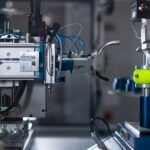Description
This project is an interdisciplinary effort led by Dr. Brian Grunau UBC Department of Emergency Medicine, Dr. Calvin Kuo UBC School of Biomedical Engineering and Dr. Babak Shadgan UBC Department of Orthopaedics. The project is also in partnership with Centre for Health Evaluation and Outcome Sciences (CHÉOS). This position will be funded in part by a Mitacs Accelerate Grant.
Sudden cardiac arrest is an under-appreciated health crisis in Canada. Every year Emergency Medical Services (EMS) respond to an estimated 38,000 Canadians experiencing sudden cardiac arrest (SCA). However, even in the best systems, only 5%‒7% of SCA cases with an EMS response survive to return home. When a citizen collapses from SCA, it must be recognized before anyone can call 911 or bystanders can start CPR. In more than 75% of all SCAs, no one is there to witness the event, so it may be minutes, hours or even days before the emergency is identified. Technology could be harnessed to address these substantial losses to life due to private location cardiac arrests, which occur to approximately 28,000 Canadians per year.
This project aims to develop engineered sensor strategies to specifically detect Sudden Cardiac Arrest and automatically call 9-1-1 with GPS coordinates. This will eliminate unwitnessed (initially unrecognized) events and will increase the chance of survival in the current treated but “unwitnessed” group from 4% to an estimated 17%. As cases would not immediately be deemed futile due to prolonged periods until recognition, sensors could double the number of patients actually treated by paramedics. This could increase the number of cardiac arrest survivors nationally from 2100 to 5500 per year.
Requirements
Candidates should have a Ph.D. in Biomedical Engineering, Electrical Engineering, or other related fields. Ideal candidates should have experience working with wearable or implantable sensors designed to measure health information and analyzing sensor data to predict health states. Qualified individuals will have the following experience and skills:
- Experience using machine learning, deep learning, or reinforcement learning to analyze sensor data.
- Experience validating wearable and implantable sensor technologies and algorithms.
- Ability to write structured code, basic scripting, run unit tests and debugging.
- Ability to effectively use statistical software at an intermediate or higher level.
- Ability to work effectively, independently and collaboratively in a team environment.
- Ability to interact productively and professionally with a wide range of internal and external collaborators.
- Strong organizational, time management, and project management skills.
Additional desired qualifications:
- Knowledgeable in HTML5, CSS3 and JavaScript and experience with traditional object-oriented languages (e.g., Java, .Net, Ruby, Python).
- Experience working with PPG signals and vital signs, in particular cardiac signals.
- Understanding body positioning sensors and GPS.
- Familiarity with sensor PCB design and firmware programming
- Experience managing studies deploying wearable and implantable sensors
- Background and engineering knowledge and experience of near Infrared Spectroscopy (NIRS).
- Background and knowledge in medical device design, manufacturing and certifications.







Leave a Reply